The war in Ukraine is impacting food security and financial stability for families in West and Central Africa
Even before the war in Ukraine started, the food insecurity predictions for West Africa were worrying. Now, the region is facing a food and nutrition crisis in its third consecutive year with 33.4 million people expected to be in need of food assistance in 2022. Families in SOS Family Strengthening Programs must not lose the progress they have already made.
“It’s worse than Covid,” says Fatou, looking discouraged.
For this single mother of four living on the outskirts of Dakar, Senegal, a war raging on another continent is impacting her ability to feed her family, as prices of food and other basic goods have soared.
Prices of sugar, rice, oil, meat, soap, and pasta have risen by 20 to 30% in West and Central Africa as the war in Ukraine has disrupted the global supply of grains and vegetable oils.
Already vulnerable, families like Fatou’s are struggling.
“A few months ago, 1 kilo of meat cost 3,000 CFA (approx. €4,6), now it’s 4,000 (approx. €6,1),” says Fatou. “We haven’t been eating meat ever since. The food I can now give to my children has changed. I had to reduce the quantity and quality, and breakfast now is just some bread.”
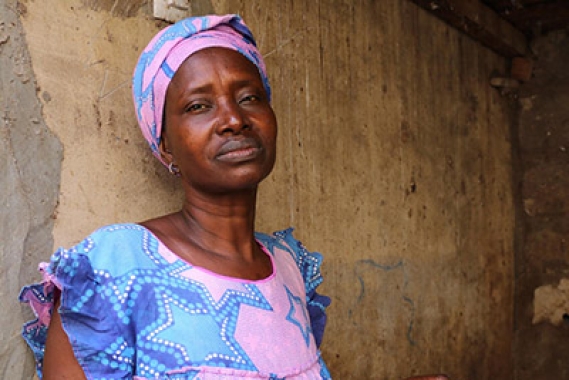
Fatou’s income has dropped dramatically as well. Fewer customers approach her street coffee shop in the morning, and she serves fewer products than before. She scaled back her poultry breeding business as the price of chicken feed is up 20%. “I had to buy less chickens because it is getting too expensive to feed them,” she says.
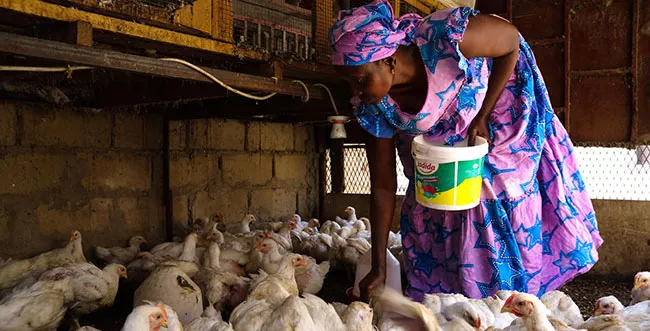
According to the World Bank, the war in Ukraine has disrupted markets and altered global patterns of trade, production, and consumption, in ways that will keep prices at historically high levels through the end of 2024.
“Families that have been in our Family Strengthening Program for years and who are finally on the right path to be independent, are now facing a setback, due to the current price situation,” says Bernadette Senghor,Regional Programme Manager at SOS Children’s Villages in Dakar. “We have to join forces as an organization to make sure that the progress made by these families does not go wasted.”
Africa, which is heavily reliant on food imports from both Russia and Ukraine, is experiencing price shocks in the supply chain of wheat, sunflower, and crude oil commodities.
The World Food Program predicts that, in West Africa alone, 7 to 10 million additional people could become food insecure due to the war’s implications. Even before the conflict started, the food insecurity predictions for West Africa were worrying. The region is facing a food and nutrition crisis in its third consecutive year with 33.4 million people expected to be in need of food assistance in 2022.
Vulnerable families face increased financial insecurity
Being the sole breadwinner, Fatou has the responsibility for her family on her shoulders. This is why, some years ago, she started to participate in a money saving initiative started by SOS Children’s Villages in Senegal for families in her community.
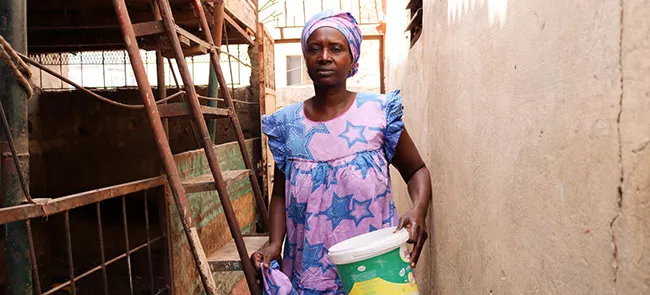
“Through the Village Savings and Credit Association, every Monday, every family gives 2,500CFA (approx. €3,5) and once a year we open the treasury and we share what’s in it,” Fatou explains. “It’s been two weeks now that I could not contribute my part. It never happened to me since I joined the association.”
When Fatou joined the SOS Children’s Villages Family Strengthening Program, she was unemployed and struggling to provide for her children following the death of her husband. “At that time, I was about to take my children out of school, because of our financial situation. Luckily, I came in contact with SOS Children’s Villages, and thanks to their support, I did not need to do it,” she remembers. With support from the Family Strengthening Program, Fatou became a working mother and an entrepreneur, launching her own poultry business and coffee shop.
But the current crisis is putting her hard-earned financial stability at risk.
Transportation costs on the rise
Matile and Mohamed, the parents of nine children, face similar hardships. For them, rising petrol and diesel prices means that the cost of taking public transit has doubled. Gas bottles have also become hard to find. Matile works as petty trader in Greater Dakar and relies on buses to get to and from the market.
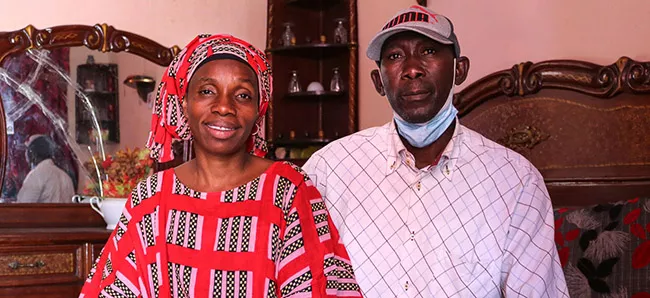
Mohamed works as a security guard in the local school, and although his salary has not been directly impacted, he is struggling to cope with the family’s current needs. “After the devastating flooding we were caught in last year, I wanted to save money for the refurbishment of our damaged house, but I can’t do that right now. I need to contribute more to the household, my wife is earning much less and we can’t afford school books for our children.”
Through the Family Strengthening Program, SOS Children’s Villages supports 169 vulnerable families in Dakar. In part, the program helps families set up income-generating activities and further develop their capacity to save money, through the Village Savings and Credit Associations initiative.
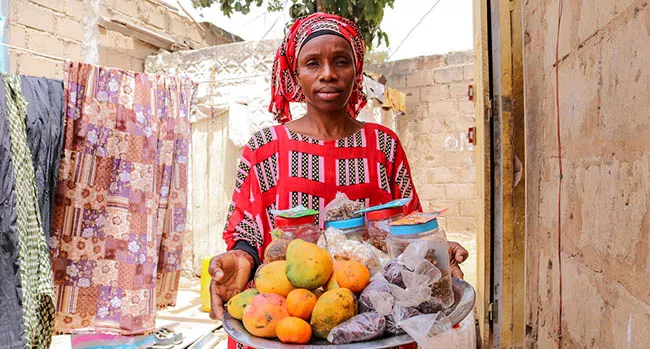
Bernadette Senghor of SOS Children’s Village says: “These families need more financial resources to cope with the soaring prices or they need to be provided with basic foodstuffs like rice, oil and sugar. What we intend to do now is to increase the daily food allowance for children and mothers, and continue to support their business activities and saving capacity.”
_____________
Canadians wishing to support SOS Children's Villages emergency response programs are encouraged to Donate to SOS MAYDAY.
